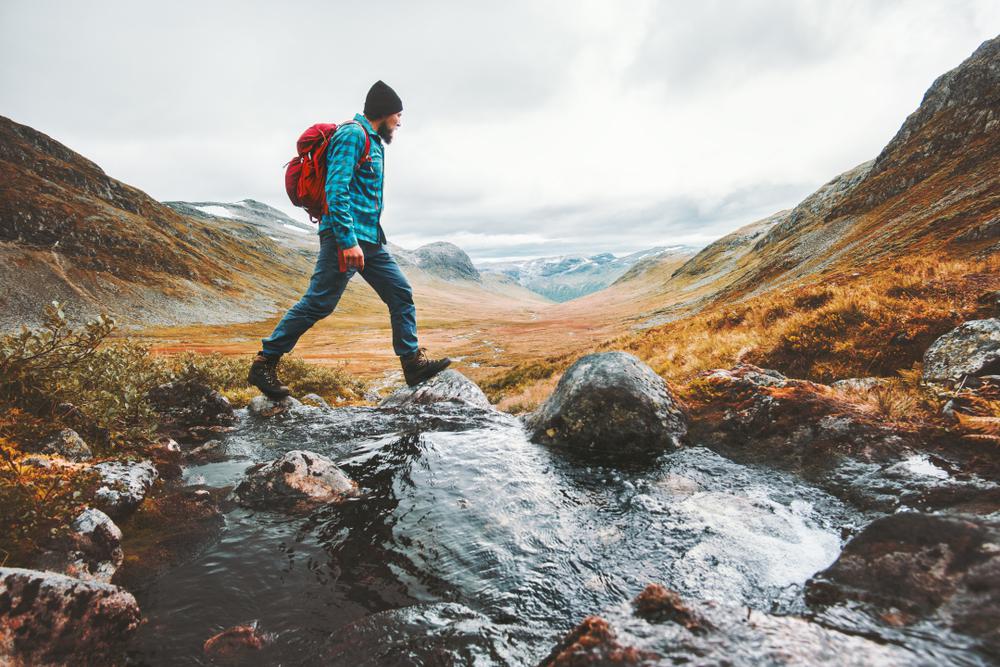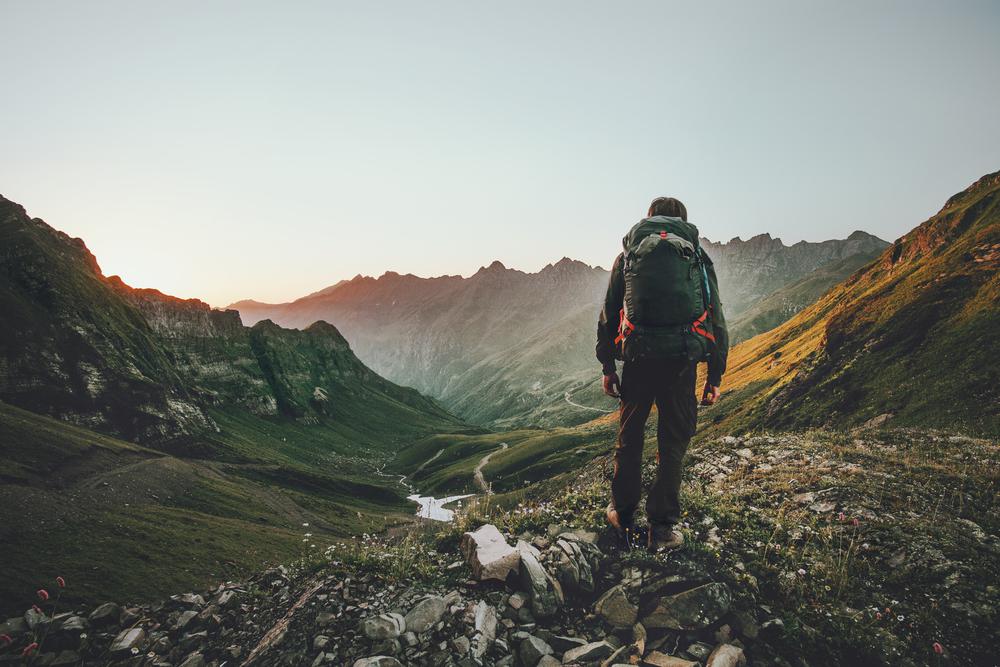Table of Contents

Hiking is a fun, healthy, and exciting way to exercise while enjoying the best that nature has to offer. But, in order to fully enjoy your hiking trip safely, it’s important that you prioritize safety – the last thing you want is to be lost in the woods without enough water.
We’re throwing together a list of 7 items that every hiker absolutely must have when heading out for an adventure. Wilderness preparedness isn’t just a novelty activity for summer camp; it’s a valuable skill that you should learn if you want to ensure you’re hiking safely.
Before you scurry off into the hills, be sure you have these 7 items:
A hiking backpack
This should go without saying (especially since we’re talking about items that go in your hiking pack) but you’d be surprised how many people trek out into the wilderness without a trusty backpack.
Your go-to hiking backpack should be lightweight, easy to carry, have plenty of storage space, and have high-quality hardware like zippers, pockets, and lining. A quality hiking backpack can last years, so there’s really no amount that’s too much to spend, as long as it’s within your budget.
Extra socks
You might be wondering why this is so high on the list – but trust us, this is highly important. When you’re hiking, you spend all day on your feet. Socks can get wet from sweat, crossing streams, and even sudden downpours, and there’s nothing worse than hiking in wet socks, except hiking in wet socks with blisters. That means wearing high-quality hiking socks is important, but bringing extras is too.
You should also seriously consider the shoes you wear, too. Be sure to find the pair that’s most comfortable for you, whether that’s high-ankle hiking boots, stability trail runners, or zero drop shoes that offer stable footing.
Water, water, and more water
Along with protecting your feet, hydration is another highly important part of outdoor readiness that you should prioritize. The biggest mistake any hiker can make is thinking that they don’t need to bring water, or even that they really only need a little bit.
Always bring 0.5 liters of water for each mile you hike at a minimum. If it’s hot out, consider bringing 0.75 or even a full liter per mile. Dehydration, heat exhaustion, and heatstroke are no joke. Take these threats seriously and remember to stop for water every couple of miles.
Energizing trail snacks
Along with hydration, your body needs to keep plenty of calories on-hand to ensure that you have the energy to keep going. Here are some simple snacks that you can bring that will keep you feeling full of energy:
- Nuts, or trail mix with plenty of nuts: these are filled with carbs and protein, two ingredients that keep you moving.
- Protein bars: these are easy to carry and nasty to snack on!
- A PB&J: you can’t go wrong with the all-American classic. Just be sure to wrap it in foil to stop it from getting smashed.
A compass and whistle
Getting lost is a real danger for many who venture out into the woods. Even if you’re just going for a shorter hike and think you know the area well, it’s still smart to always have navigation and rescue tools on hand just in case.

Be sure to bring along a local map, too. Using a compass and map together, you can more easily find your way back to a familiar trail – and if all else fails, blow your whistle and hope that someone will hear and come to your aid.
A basic utility tool or knife
Most hikes, you won’t have any need for a multi-tool or knife. However, if you do get lost, having an effective tool can mean the difference between survival and becoming a grizzly bear’s breakfast. Knives can be used to cut kindling for fires, harvest edible plants, and even defend yourself if an aggressive creature attacks.
Sunscreen
Last but not least, remember what your mom always told you: put on plenty of sunscreen before heading out. Since you have that awesome hiking backpack we mentioned before, feel free to bring along the whole bottle so that you can re-apply every few hours.
The right preparation can mean the difference between a safe and fun hike and one that ends in disaster. Be sure to plan ahead and enjoy the wilderness safely!







